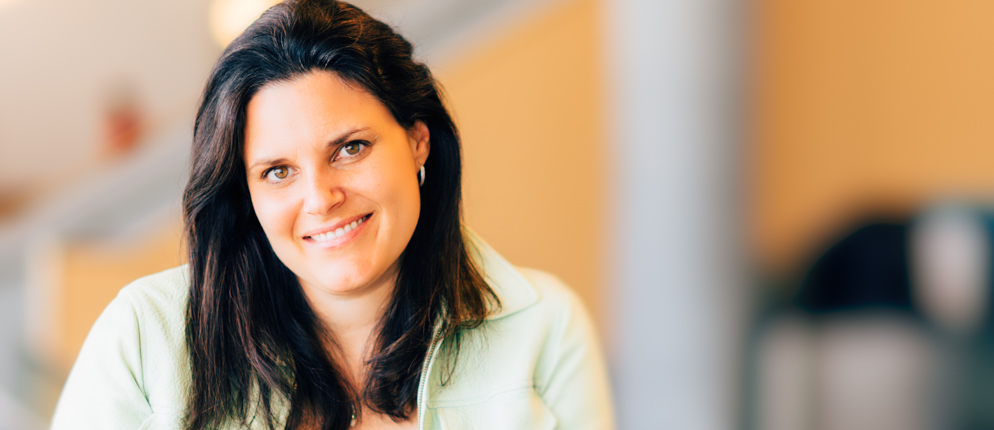How ECEs could be the next game-changers
Program Head, Early Childhood Studies, Dr. Nikki Martyn, presents case study research findings at 32nd International Conference of The World Association for Case Method Research & Application, Odense, Denmark

“I would now like to tell you a story,” begins Dr. Nikki Martyn, program head of Early Childhood Studies at UofGH.
The story is about a young boy, who, by the age of three, had been diagnosed with severe autism. This young boy’s story ends happily, albeit rarely, thanks to Dr. Martyn’s acute observations at a therapeutic daycare. She’d realized that a trauma he’d endured as an infant had created behaviours that had been mistaken for autism. She altered his treatment accordingly, and happily reports he is typically developing today, having lost his mistaken diagnosis.
Read more about the boy’s story here.
The end of his story has now marked the beginning of another for Dr. Martyn – one that involves the role of an early childhood educator, and one that holds the potential to move the profession forward in a whole new way.
Case study research
In an innovative case study research project, Dr. Martyn has developed a course with this case of a boy as its framework. For early childhood studies students in their final year at UofGH, the entire 12-week course pulls from the case in order to explore a variety of issues affecting the field.
“We look at brain development and attachment theory,” says Dr. Martyn. “We need to understand how we relate to one another, why empathy is important. We need to understand what autism is, what trauma is, what diagnosis is, what assessment and intervention are.”
Students explore broader issues, as well, such as childcare legislation, increases in support for special needs childcare, relationship of diagnosis to beneficial funding of children.
But there’s a core topic – not expressed through such titles – that’s emerged as perhaps the most significant of them all.
“The idea that an early childhood educator could be instrumental to a therapeutic change within a child is quite unusual. That our students saw that you can do more in a childcare setting than is perhaps traditionally understood, was wonderful to see.”
She explains: “We continue to grapple with what it means to be a professional early childhood educator. To be a professional in this field. The designation is relatively new to the field.”
She talks about stereotypes associated with the field, that early childhood educators are often dismissed as babysitters. Even within the field, she says, there is dismissal. Her voice rises in emphasizing the irrationality. “But it’s some of the most important work we do! Those children become adults!”
“We are at the forefront, as post-secondary educators. How can we push our students’ ideas of what they’re capable of in the field?” she asks, rhetorically.
We need to be at the table
“Right now, ECEs aren’t at the table with other professions. It’s bizarre to me. We have speech and language pathologists, occupational therapists, physiotherapists, psychiatrists, psychologists – all who come in with a very specific view of the child. Everybody has their unique and important piece – but what we’re missing, is that person who understands the entire child.”
She continues: “That person is the early childhood educator. They spend eight hours a day with the child, they understand that child’s development because they have an academic background in development, in observation, in assessment. But we’re not using them as much as we should be. There’s something so wrong with that.”
Dr. Martyn suggests what she calls ‘a massive change to the system’: an interdisciplinary team, inclusive of an early childhood educator that could implement recommended therapies into a child’s daily activities.
“It’s a vision, for sure, but I believe it’s an important vision.”
“My hope in developing a course such as this, is to help to create a professional who can take their skills out into the world. Who can graduate from UofGH and be able to raise critical questions in the field with confidence. To be empowered to have a voice, and to use it to effect real change.”


